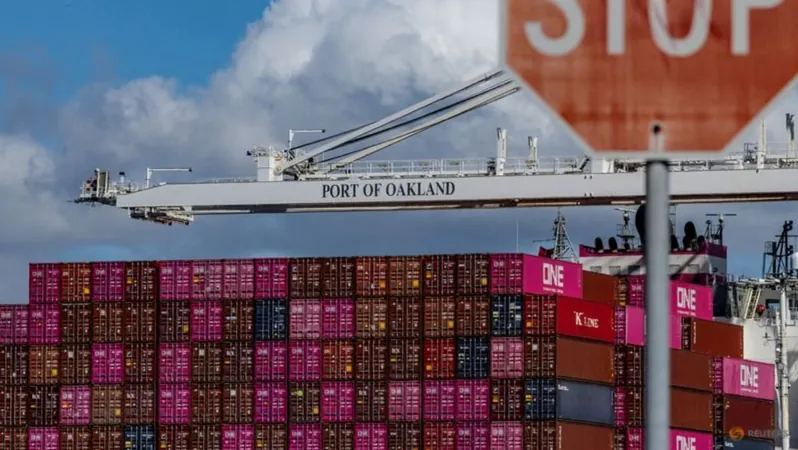
Trump's Bold Tariff Announcement: A Game Changer for Global Trade?
2025-03-31
Author: Sarah
In an unexpected declaration aboard Air Force One, President Donald Trump announced that his forthcoming tariff plan would encompass all nations rather than being limited to just 10 to 15 countries with the most significant trade imbalances. This statement, made on March 30, has the potential to reshape the dynamics of international trade.
Trump's much-anticipated tariff strategy, which he has dubbed "Liberation Day," is slated for unveiling on Wednesday. This bold move comes on the heels of his previous tariffs on aluminum, steel, and automobiles, as well as an overhaul of tariffs on Chinese imports. It appears that Trump aims to establish a comprehensive approach to trade by addressing disparities with a broader array of countries.
While White House economics adviser Kevin Hassett had previously hinted at a focus on a smaller group of nations with the most pronounced trade deficits, Trump's comments suggest a more aggressive strategy that would target virtually all nations engaged in trade with the U.S. During his remarks, Trump stated, "You'd start with all countries. Essentially all of the countries that we're talking about."
This aggressive tariff policy is rooted in Trump's belief that tariffs are essential for safeguarding American jobs and industries from what he characterizes as unfair competition from abroad. Furthermore, he views these tariffs as a bargaining chip to negotiate more favorable trade agreements for the United States.
However, the announcement has ignited fears of a full-scale trade war, sending ripples of concern through global markets. Investors are wary of potential retaliatory measures from other countries and the long-term impact of such policies on the U.S. economy. Economic experts are sounding alarms about a possible recession if the trade tensions escalate.
In February, Trump underscored his commitment to this tariff plan by directing U.S. trade officials to evaluate trade practices with individual countries and compile a list of tailored countermeasures. Recently, he hinted at the possibility of scaling back some of the reciprocal tariffs, suggesting that rates might be lower than those imposed by the countries in question.
As the world watches closely, the implications of Trump's tariff announcements on the global economy and international relations remain uncertain. Will this be a strategic move that benefits the U.S., or could it plunge the country and its trade partners into a damaging economic conflict? Stay tuned for what promises to be a pivotal week in U.S. trade policy.



 Brasil (PT)
Brasil (PT)
 Canada (EN)
Canada (EN)
 Chile (ES)
Chile (ES)
 Česko (CS)
Česko (CS)
 대한민국 (KO)
대한민국 (KO)
 España (ES)
España (ES)
 France (FR)
France (FR)
 Hong Kong (EN)
Hong Kong (EN)
 Italia (IT)
Italia (IT)
 日本 (JA)
日本 (JA)
 Magyarország (HU)
Magyarország (HU)
 Norge (NO)
Norge (NO)
 Polska (PL)
Polska (PL)
 Schweiz (DE)
Schweiz (DE)
 Singapore (EN)
Singapore (EN)
 Sverige (SV)
Sverige (SV)
 Suomi (FI)
Suomi (FI)
 Türkiye (TR)
Türkiye (TR)
 الإمارات العربية المتحدة (AR)
الإمارات العربية المتحدة (AR)